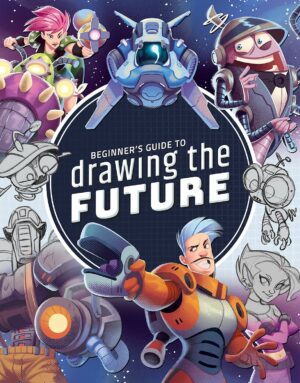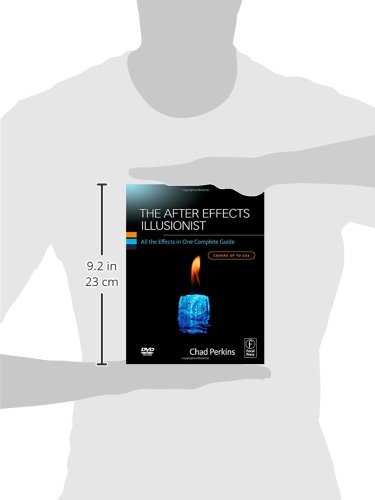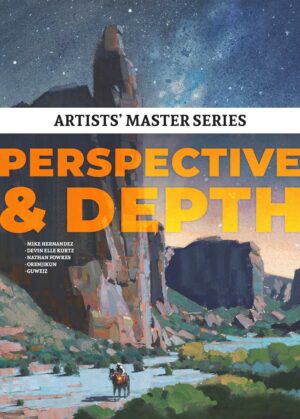For any writer who wants to become an expert comic-book storyteller, The DC Comics Guide to Writing Comics is the definitive, one-stop resource!In this valuable guide, Dennis O’Neil, a living legend in the comics industry, reveals his insider tricks and no-fail techniques for comic storytelling. Readers will discover the various methods of writing scripts (full script vs. plot first), as well as procedures for developing a story structure, building subplots, creating well-rounded characters, and much more. O’Neil also explains the many diverse formats for comic books, including graphic novels, maxi-series, mega-series, and adaptation. Of course, there are also dozens of guidelines for writing proposals to editors that command attention and get results.
Read more
223 reviews for The DC Comics Guide to Writing Comics [Paperback]
Show all
Most Helpful
Highest Rating
Lowest Rating

![The DC Comics Guide to Writing Comics [Paperback]](https://cdn.digitaldelights.co/wp-media-folder-digitaldelights-co/wp-content/uploads/2025/08/the-dc-comics-guide-to-writing-comics-paperback.jpg)







Mike Suchcicki –
Students of creative arts (cartooning, painting, woodcarving, writing, whatever) want two things out of a good textbook: Instruction on how to do the craft and examples of just what the completed craft is supposed to look like. In a book about writing for comics, for example, it’s just as important to see what a finished script looks like as it is to read about how it’s done. (In fact, for many students, that’s all they want: Just show me what the thing is supposed to look like and I’ll figure out the rest.)
Denny O’Neil (I’ve never met the man, but I’ve been reading his work for so long, I feel that I’ve achieved nickname basis) has produced a rich textbook meeting both of those qualifications.
For those who are more nuts-and-bolts-oriented (and I admit I’m in that group), O’Neil gets to the juicy stuff early in the book with his discussion of the differences between, and pros and cons of, the full-script and plot-first techniques. There are plenty of visual examples, juxtaposed with the finished comic pages.
O’Neil, however doesn’t skimp on the how-tos. He offers detailed sections on story structure, subplots, characterization and more. If he comes to an element that just can’t be described in an instructional form (writing realistic dialogue, for instance), he explains why it cannot be taught and offers substantial suggestions for how the student can develop his or her own skills in the element.
He also describes the various architectural forms within the comic world — miniseries, maxiseries, graphic novels, ongoing series, adaptations, etc. — and the structural differences and nuances of each.
This is a fine, valuable instructional manual. O’Neil has left nothing out.
(By the way, this is the second DC Comics Guide I’ve purchased; they are both excellent instructional manuals.)
Casey W. Christofferson –
Great for writers and those who aspire to write for comics. I write RPGs for several independent RPG companies. My kid is into comics and draws and aspires to create comics all the time. Why not get a guide to comic writing by Denny O’Neil the father of “serious Dark Batman” stories and see what insights can be gleaned? I also teach Graphic Design and previously bought the DC guide to Coloring and Lettering. I use the pertinent information from that volume to develop lesson plans because even at 10 years old it is still more up to date than most of the text books shoveled out by Adobe’s Peach Pit Press.For example the lettering book comes with instructions on how to actually use Fontlab, which is something Fontlab doesn’t even come with! The DC Comics Guides are a great series of books by LEGENDS in the comics field. I highly recommend them for students, teachers, and folks interested in breaking into comics.
App Fred H L –
Given the increasing reliance of Hollywood on graphic novels and comics for inspiration in producing action movies this book is a must buy for frustrated script writers and students of the genre alike.
Wes Locher –
The DC Guide to Writing Comics by Dennis O’Neil is a quick little romp through the utter basics of story structure, scripting, and dialoging.
Having been a huge fan of comic books for as long as I can remember, I’ve always had the desire to write and publish my own mainly just because I think it would be fun. For me, sequential art has always been a medium that ties together well-written prose with artwork that’s exciting and and full of detail.
If you don’t know the first thing about writing comic books, then I’d recommend this as an excellent place to start. Sure, O’Neil spends a lot of time on the very basics of storytelling, informing the reader of what’s necessary for Act’s I-III. While you might be able to pick this up just from reading a single issue or complete story arc in a current title, it’s great to have a small reference book for your shelf that doesn’t require you to thumb through hundreds of pages to find the info you seek.
My favorite section offered up was that on scripting. Comic book scripting is one of those things that’s very much dependent on person preference or publisher. It helps the aspiring comic writer find the style best suited for him or her and provides interesting exercises in one’s ability to adapt to whatever the project requires. For effect, O’Neil juxtaposes his scripts with the finished product so you can see how artist interprets the writer’s ideas and direction.
Even if you have no desire to write a comic, this quick read will give you an appreciation for how the books are constructed. If nothing else, it will remind you that even though it only took you ten minutes to read a single issue comic cover to cover… the creative team spent weeks channeling their creativity into the medium.
It’s important to note that regardless of the fact that Batman and Superman adorn the covers of this book, the suggestions, tips, and tactics within are applicable to all styles of graphic storytelling. The section on plot structure alone should earn this a spot on any writer’s shelf.
Brendan O’Meara –
I write narrative nonfiction and this is my go-to book on writing. A book on how to write comics as a guide? Yep, you bet!
Tridello Cris –
La guida di Dennis O’ Neill ha soddisfatto le mie aspettative. Tutte le fasi della sceneggiatura vengono spiegate e analizzate nel dettaglio, con esempi chiari su fumetti DC comics d’annata e con spiegazioni dei motivi che hanno spinto l’autore verso una soluzione. Il libro è di grande formato e molto elegante, ben scritto e perfettamente comprensibile (a patto di conoscere l’inglese).
Consigliatissimo.
jeremy –
Thank you so much! I’ve been wanting to get this for my nephew that draws his own superheroes. He will get a lot of use out of it I can’t wait to see the look on his face when he opens it on Christmas morning!
Yo boi, Diego –
Great condition, thank you!
Alex T. –
Fantastic & interesting read. Illustrations are amazing and inspiring. Worth looking at if you are interesting to make your own comic books. This book has plenty of great hints/tips on all aspects of creating a comic and story. Great value – Worth reading this book.
EV –
Great, thanks!